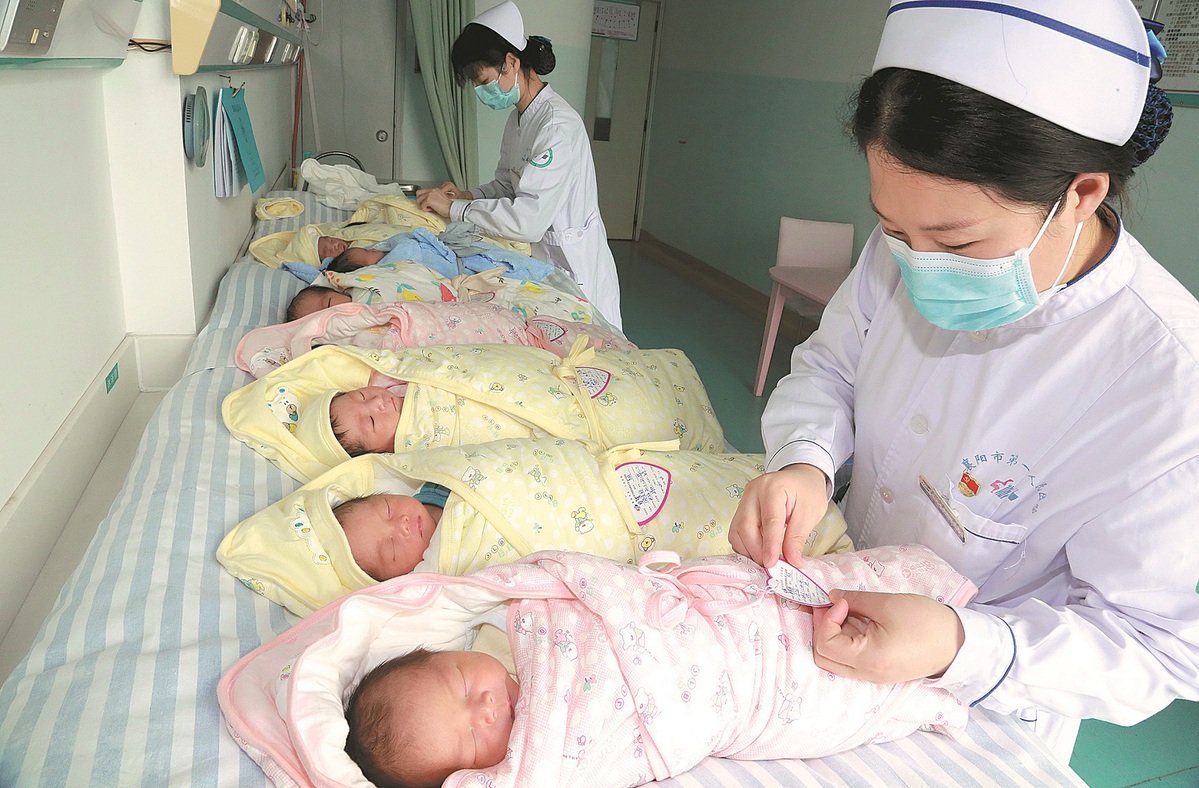Declining births trigger calls for action
By WANG XIAOYU | China Daily | Updated: 2023-02-09 07:44

The central and local governments have introduced a series of incentives, including tax cuts, cash bonuses and extending maternity leave, but Mao said implementation of these measures is still at an initial stage, and more comprehensive and concrete action should be taken to encourage couples to have children.
Last month, the government in Shenzhen, Guangzhou province, said couples having a third child would be eligible for a cash allowance of 19,000 yuan ($2,825) until the child reached the age of 3. Public opinion is being sought for this measure.
The subsidies for having a first and second child would be 7,500 yuan and 11,000 yuan, respectively, the government said.
However, Ma Li, 29, who lives in Shenzhen and is planning to have her first baby in the coming years, is reluctant to have a second or third child. She said the allowances offered have affected her decision.
"The time and energy we need to invest in raising one child is overwhelming, let alone two or three. The most effective incentive would be to give me an apartment," she said.
Ma added that despite appealing for more affordable nursery care services to be provided in recent years, she has rarely seen employers offering to equip workplaces with such facilities.
"I am also looking forward to assisted fertility procedures being reimbursed in the future. Many people wanting a second child are in need of such services," she added.
Mao said action needs to be taken now to adjust to new trends, such as delaying marriage and having children.
"For example, the increasing number of high-risk pregnancies means that more women are undergoing costly prenatal examinations, and more couples are also seeking fertility treatment. Such services are not included in medical reimbursement plans," she said.
Mao added that it is important to increase willingness among young people to get married, and guide them in starting a family at recommended ages.
Song Jian, a professor at Renmin University's Population Development Studies Center, said boosting the fertility rate is the only way to address a population decline.
"Over the years, the burden of looking after the elderly and young children has shifted to families themselves. Such a burden, coupled with workplace pressures, has deepened anxiety and even fear about marriage and childbearing," she said.
Yuan, from Nankai University, said: "Many young people are unwilling to marry, and are choosing to stay single or have no children. Their perspective on marriage and childbearing has changed a lot from that of previous generations."
He suggested that the precise needs of young people should be determined so that they can be persuaded to change their views on marriage and having children.
























